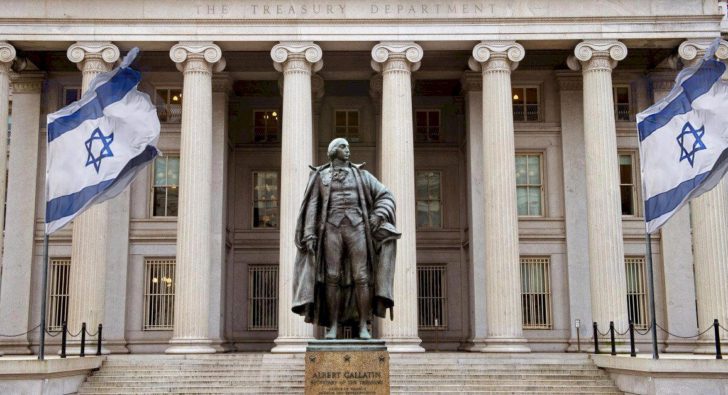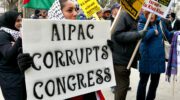For decades Israel has profited at the expense of American industry, thanks to AIPAC’s theft and illegal distribution of classified economic data…
Today, AIPAC-influenced U.S. federal and state agencies channel hundreds of millions of taxpayer dollars away from American companies into the coffers of new, often incompetent, Israeli market entrants…
Reposted from IRmep, February 20, 2023 [Photos added by IAK]
2024 will mark the fourth decade since AIPAC and the Israeli Minister of Economics stole classified American industry data to aid passage of America’s worst bilateral trade deal.
Among all bilateral “Free Trade Agreements” (NAFTA and CAFTA are multilateral) the 1985 U.S. Israel deal has produced the highest inflation adjusted cumulative merchandise trade deficit—$365.9 billion—since going into effect. In 1984 American companies were steamrolled by corrupt politicians on the take from AIPAC-directed stealth political action committees or PACs. Today, captured U.S. federal and state agencies channel hundreds of millions of taxpayer dollars away from American companies into the coffers of new, often incompetent, Israeli market entrants.
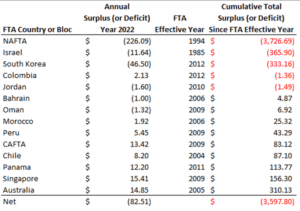
The U.S. trade secrets stolen by AIPAC and the Israeli Ministry of Foreign Affairs were contained in the classified International Trade Commission ITC report “Probable Economic Effect of Providing Duty-Free Treatment for Imports from Israel.” The U.S. Trade Representative denied FOIA release on national security grounds in 2008 and 2009 before a review by a higher authority, the ISCAP, forced release in 2011. Report content that predicted and quantified damage to U.S. industry remains classified to this day.
What has never been secret is that U.S. trade and industry groups were uniformly opposed to an FTA with Israel because Israel’s market was insignificant, geared toward exploiting foreign intellectual property and the deal offered no identifiable reciprocal benefits while opening the way for other politically driven trade policies that would explode the U.S. trade deficit and deindustrialize key sectors.
The passage of time has proven opponents to be right.
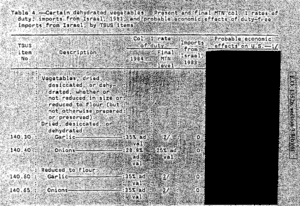
Illegally obtaining and circulating the classified report helped AIPAC target U.S. politicians for reform or replacement. For example, the report contained confidential input from Ohio Republican representative Delbert Latta who fretted over the impact of the FTA on U.S. tomato growers. A 1988 election roundup boasting of the wins for AIPAC-directed Israel stealth PACs noted with satisfaction Latta was “stepping down—to the relief of some pro-Israel activists. His replacement is likely to be state Senator Paul Gillmor, a Republican who has impressed some pro-Israel activists.”

In the following sections we review what the stolen 1984 report predicted and how valuable the industry secrets were to AIPAC and its Israeli government foreign principals, both in terms of import export strategy and highlighting new avenues to gain preferential U.S. market access through 2022.
Israeli Espionage in the Diamonds and Jewelry Industry
Israel’s leading export to the United States has long been polished cut diamonds. As Section 6 of the classified ITC report noted, diamond exports amounted to 5 percent (approximately $1.2 billion) of Israel’s GNP in 1982, sustained 850 companies and employed 9,500 workers.
Although diamonds sourced from Africa, cut in Israel, and exported abroad already entered the U.S. duty free, Israel no longer wanted to be subject to the vagaries of the General System of Preferences or most-favored-nation duty in effect at the time. Rather Israel wanted a permanent, unconditional U.S. market access guarantee that only a FTA could achieve, as was made clear in the ITC report.
“Implementing of this proposal would eliminate uncertainty over future of the GSP program, a program which is the key to Israel’s competitiveness in the U.S. market. Israel would be able to commit itself to increasing production with some degree of certainty of market direction.”
AIPAC and Israel needed the classified section of the report on diamonds and jewelry to be able to “prove” to members of Congress and other stakeholder groups concerned about opening up the U.S. market that there would be no harm to domestic industries. Indeed, illegal Israeli report circulation is how the FBI received its first reports of economic espionage sufficient to commence a lengthy investigation.
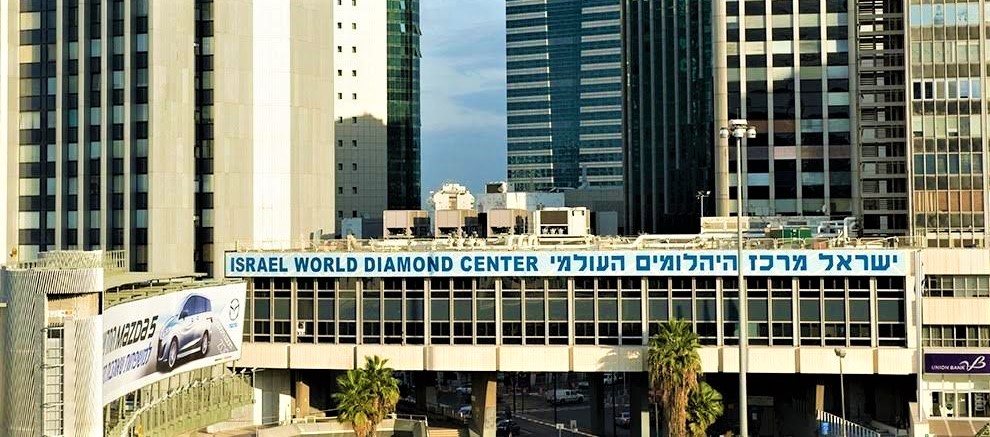
On June 21, 1984, the FBI’s Washington Field Office reported to the FBI director that “Israelis were offering copies of this document to members of Congress because the United States Trade Representative was slow in delivering them.” But the classified report was never intended to be distributed to members of Congress or their constituents.
“…the president’s negotiating position concerning a trade agreement between the United States and the State of Israel is compromised because this report divulges those products and industries that have been identified by the International Trade Commission as being the most sensitive to imports from Israel.”
Source: FBI Israel economic espionage investigation report, 6/21/1984
As noted in the report, American industry felt under threat by the proposed deal.
“Israel’s advantage over U.S. [gold] chain producers lies in lower production costs…future gains in the U.S. chain market will most likely come at the expense of U.S producers because of this price advantage.”
The largest U.S. national jewelry association and domestic producers appeared before the Senate Finance Committee to protest against opening up the market since it would negatively impact their attempted recovery from a three-year slump.
“Of particular concern is the precious metal chain industry where the import-to-consumption ratio already exceeds 60 percent.”
After reviewing the conclusions of the secret ITC report they were never intended to receive, AIPAC and the Israeli government could rest assured they had the final word over this sector of American industry and could focus on other important areas such as manufactured goods and pharmaceuticals.
“Support for the elimination of jewelry tariffs came from an importer and the American Israel Public Affairs Committee. [AIPAC] noted that some 97 percent of the jewelry imports from Israel already enter duty free under the GSP, so no large increase of Israeli jewelry imports could be expected.”
AIPAC lobbyists, of course, did not mention that replacing privileges under GSP with a more permanent Israel FTA right to U.S. market access was the key reason Israel wanted a bilateral agreement. Preferential treatment of Israeli diamonds have locked in its 27 percent share of U.S. imports which were $23 billion in the year 2022. Cumulative inflation adjusted Israeli diamond exports to the U.S. grew to $266 billion between the years 1992 and 2022.
The return of unsold diamonds from the U.S. to Israel also provides the helpful illusion that the U.S. deficit with Israel is much lower and bilateral trade is higher than it actually is. According to diamond analyst Rapaport News, “the net diamond account is the total rough and polished imports minus total exports.”
The U.S. returns billions of dollars of unsold diamonds to Israel every year. The U.S. Trade Representative and Census Trade Division breathlessly count these as deficit reducing, legitimate U.S. “exports” to Israel when they are not, while touting unduly inflated and growing bilateral trade figures. We subtract the value of transfers of unsold Israeli diamonds from the U.S. back to Israel to arrive at our inflation-adjusted cumulative bilateral merchandise trade deficit of $365.9 billion.
Israeli Espionage in the Computer Processor Industry
The Israeli government was focused in 1984 as much as it is today on the export of high value-added manufactured goods such as medical equipment and weapons. The report noted “Israeli exports of machinery and equipment to the United States increased from $132 million in 1979 to $260 million in 1982 and then decreased to $241 million in 1983.” The ITC report also noted Israel’s nontransparency over weapons sales, citing “miscellaneous metal manufactures..nearly all these exports were shipped to unspecified destinations.”
U.S. manufacturers of high-end information and telecom equipment expressed their worries in the classified ITC report that other countries, especially from Western Europe, would enter the Israeli market solely to be able to manufacture and export duty-free into the United States. That is very close to what ultimately happened. With drafts of the report in hand, it is likely that AIPAC was able to influence the ITC’s final conclusions that there was simply no threat.
“Substantial capital investment and production capacity would be needed and the country is already heavily dependent on foreign loans and transfer payments. Imports from Israel also would most likely have a negligible impact on U.S. industries producing these products or on U.S. consumers.”
This finding was like a blank check for Israel and AIPAC. In the end, the U.S. manufacturer Intel moved production to Jerusalem and even opened plants in the illegally occupied Kiryat Gat. Although some industry analysts attribute this move to then-CEO Andy Grove’s high affinity for Israel, the move helped block any threat of major foreign ITC manufacturers relocating to Israel solely to exploit the U.S. market.
U.S. workers at Intel chip fabs were clearly the losers. Before the trade deal Intel had no reason to produce outside the U.S. but since 1996 has opened three plants in Israel.
Copycat Pharmaceutical Exports to U.S. Direct Market Entry
In 1984 U.S. producers warned the ITC about lax Israeli intellectual property protections and “alleged problems that arise from Israel patent procedure laws that adversely affect the international competitiveness of U.S. chemical producers.” Their concerns were steamrolled when the ITC characterized their concerns as “negligible” and Congress, at the urging of AIPAC and Israel, passed the FTA in 1985.
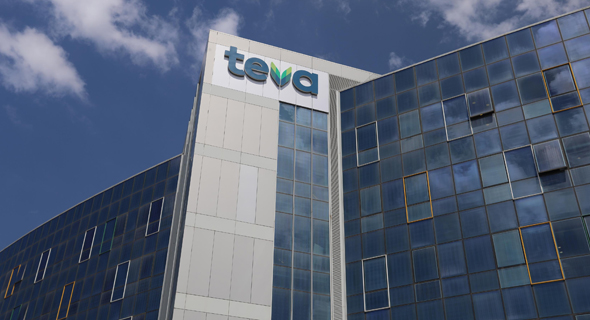
Israeli pharmaceutical exports to the U.S. were only $34 million per year according to the 1984 ITC report. Under the new preferences for Israeli exports of generic drugs from producers who simply surreptitiously obtained and copied patent application files of major U.S. companies surged to $5.4 billion in 2012 before falling to $1.2 billion in 2022.
The USTR investigated Israel in 2005 and the USTR placed Israel on its Priority Watch List in 2006, 2007 and 2008 over this economic espionage politely described as “unfair commercial use of undisclosed test and other data submitted by [U.S.] pharmaceutical companies seeking marketing approval for their products.”
Under the scheme, Israel would protest that U.S. drug manufacturers were not selling into the Israeli market. After grudgingly filing mandatory Israeli government regulatory disclosures of ingredients and confidential manufacturing processes, Israeli companies would obtain, copy and manufacture the drugs for export.
Today Israel has graduated from its preferential FTA boosted cross-border trade of copycat drugs into U.S. markets to direct subsidized market presence of Israeli companies to compete directly with and displace American companies.
Nearly every major spending bill now passed by Congress, under ongoing AIPAC lobbying pressures now mandates the involvement of the Israeli government in U.S. funded initiatives to boost semiconductors, drones, weapons development, energy, and water sectors. Following the pharmaceutical model, Israel quickly involves private, for-profit Israeli companies to begin profiting from the funding and intellectual property development.
Today, rather than ship US bound copycat pharmaceuticals from Israel, the Israeli drug manufacturer TEVA has major production locations in the United States. One industry analyst claimed that by the end of 2017, Teva had 51,792 employees internationally, 24 percent in the United States, 43 percent in Europe, 12 percent in Israel and 21 percent over the rest of the world.
Virginia Prefers Israeli over State and National Companies
No state in the U.S. offers more preferential market incentives to Israel over its U.S. and state companies than Virginia. Under pressure from wealthy Virginia Jewish federations, a state agency was set up called the Virginia Israel Advisory Board. VIAB guides Israeli companies into the state and provides them with fast tracked approvals at key regulators, access to capital in the form of free grants and subsidized loans, manufacturing ready building shells, taxpayer funded electrical and sewer infrastructure among other incentives.

The Israeli company Energix, brought in by VIAB, has accrued four types of support in the U.S. market despite its UN listing as a human rights violator. Energix lobbyists from major Virginia law firms and VIAB officials working for Israeli companies pressure the governor, county government and the state legislature to issue and streamline permit applications. Energix received more PPP loans than any other Virginia solar company.
Federal lobbying has ensured Energix gets maximal U.S. solar energy tax credits for its projects amounting to tens of millions of dollars. Additional federal largesse flows through the U.S. based but mostly Southeast Asia cadmium telluride solar panel manufacturer First Solar and on to Energix in the form of project financing. Independently forecast 35-year Energix project revenues in the U.S. currently exceed $4 billion.
Since 2013 VIAB and AIPAC have also lobbied Virginia state representatives to set up a mega aquaculture project in southwest Virginia code-named “Project Jonah.” At least $25 million in US government funds have been committed in addition to hundreds of millions in foreign government funds. At peak production, Project Jonah could generate nearly $150 million in yearly revenues.
VIAB and AIPAC’s long-term plan is for most of that operating revenue to accrue to the Israeli recirculating aquaculture company AquaMaof, which has been struggling with lawsuits over failures of its technology and workflow. Despite AquaMaof’s incompetency, late in 2022, project boosters celebrated receipt of $4.3 million in American Rescue Plan funding to build a water pipeline to supply Project Jonah.
Locals questioned that use of ARPA funding for Project Jonah over community needs more aligned with county social services and health needs, as well as questioning why Virginia market leader Blue Ridge Aquaculture was bypassed. County officials, many of whom have taken multiple trips to Israel funded by AIPAC, provided no credible answers.
Another VIAB project, Oran Safety Glass, is a heavily subsidized Israeli military contractor that swept into the market only to deliver substandard armor to the U.S. Army. Greensville County Virginia spent millions providing electrical infrastructure and facilities to OSG, which has never met job-growth objectives despite continuing to receive state grant-funding tied to rigid performance agreements.
Other big wins for VIAB are the importation of the Sabra Dipping company through massive subsidies and incentives that allowed the Israeli company to wipe out the market share of fragmented, small, independent, unsubsidized American hummus producers.
Secrecy over ongoing VIAB operations to bring in ever more Israeli companies to wrench market share from American producers via preferential U.S. subsidies and opaque lobbying is paramount to Israel’s lobby.
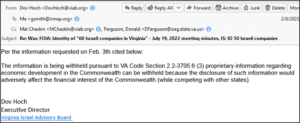
Executive Director Dov Hoch is today the only U.S. based lobbyist for Israel subject to any sort of sunshine law because VIAB is a state government agency. When recently asked to identify 50 Israeli “lead” companies he claimed in a November 10, 2022 VIAB board meeting could locate to Virginia, he declined under the pretext that Virginia was in a fierce battle to land the companies “while competing with other states.”
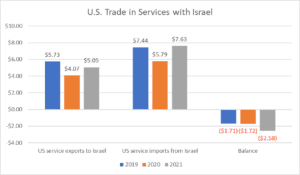
Replacing domestic Virginia producers with Israeli companies sourcing equipment and professional services like design and engineering from Israel while repatriating profits has helped increase revenue flows to Israel and away from American companies as much as preferential market access under the 1985 FTA. And like the nationwide bilateral FTA numbers, it has not positively impacted Virginia’s cumulative inflation-adjusted merchandise trade deficit with Israel which between 2012 to 2022 grew to $4.6 billion.
Israel Gatekeeps Arab Direct Investment in the U.S.
Nationwide, Israeli foreign direct investment in the United States has surged 36 percent between 2018 and 2021, with profits repatriated from Israeli entrants growing 103 percent to $1.629 billion. In comparison, over the same period, FDI from much wealthier UAE has fallen 12 percent with revenues only growing 25 percent to $1.736 billion. This reveals not only the lack of UAE influence and subsidies in the U.S. compared to Israel but an entirely new dynamic. Israel and its lobby have so effectively policed and shut down any major UAE direct investments, such as the case of Dubai Ports World, that such investors must now work through Israel and its lobby. If UAE, which has now signed a dubious “Abraham Accord” with Israel, wants to directly invest in the U.S., it has to be into Israeli initiatives such as Project Jonah, which is slated to receive hundreds of millions in Dubai investments run through Singapore under the watchful eye of VIAB and AIPAC.
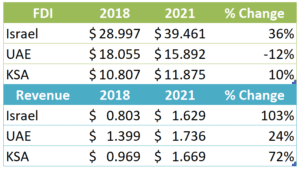
The Kingdom of Saudi Arabia, which is reluctant to sign an Abraham Accord despite heavy pressure from Israel and its lobby, has not had to work through Israel on FDI and has seen its own non-gatekept direct investment in the U.S. grow by 10 percent with repatriated profits up 72 percent over the same period.
AIPAC lobbied to create the OTFI economic warfare unit at the U.S. Treasury Department. Arab sovereign wealth investors, especially signatories of Abraham Accords, know that their bank accounts and assets can be frozen at any time by Israel lobby influenced politician resolutions filed with OTFI. This may continue to depress their investments in the U.S. outside the “secure channels” of an investment —like Project Jonah—primarily designed to benefit Israel.
Conclusions
The FBI was unable to conclude its espionage investigation into AIPAC and the Israeli ministry of Economics which began in mid-1984 and lasted into 1987 due to endemic Department of Justice deference to Israel visible in its many prior failed attempts to enforce U.S. law.
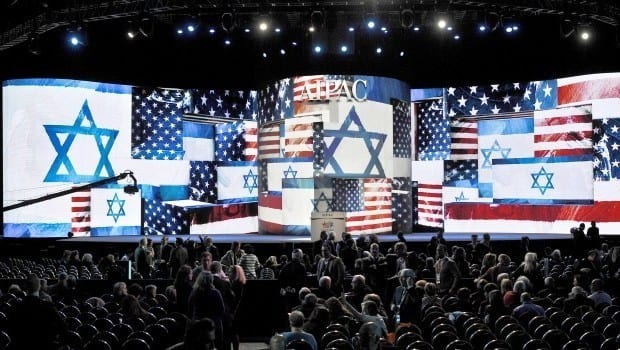
If the Department of Justice had properly enforced FARA against AIPAC in 1962, it is likely that this cascading damage from espionage and new Israel market entry subsidies that harm the U.S. economy would not have occurred. As revealed in our latest book and podcast, AIPAC was set up by the Israel government and its cutout the Jewish Agency in the 1940s-1960s. It is a foreign influence operation.
At present, Americans should assume the DOJ, Congress, the president, and agencies with any impact on U.S. Israel relations have mostly been captured by AIPAC and would rather harm the U.S. economy than help if AIPAC declares an action would support Israel.
The only light on the horizon glimmers in Virginia where, somewhat beyond the reach of AIPAC and captured U.S. federal agencies, empowered local communities have effectively fought back against lavishly funded Israeli companies like Energix that combine undue influence and discriminatory market access to capital to import their worst overseas practices into the United States.
The Institute for Research Middle Eastern Policy (IRmep) is a Washington-based nonprofit organization that studies US-Middle East policy formulation. Founded in 2002, IRmep became an independent private non-profit tax-exempt organization in 2003. IRmep’s EIN is 81-0586523.
FURTHER READING ON ISRAELI ESPIONAGE:
- Israel’s Decades of Economic Espionage in the United States
- Secret gag order hides Israel’s espionage & theft of US nuclear technology
- Bill Would Force NASA Cooperation with Israel Despite History of Israeli Espionage
- Flashback: U.S. agencies investigate Israeli “art students”
- Flashback: Vast Israeli Spy Network Dismantled in US – Le Monde
- Jonathan Pollard says Jews ‘will always have dual loyalty’ and would counsel young Jews to consider spying for Israel
- ‘Israel worst counter-intelligence threat to US in the Middle East’ – US Security Establishment
- Israel Spies and Spies and Spies
ISRAELI SPYING SOFTWARE:
- Guardian, NYT, WaPo report: Israeli spyware is getting Israel in hot water
- WATCH: Israel Uses Military Tech Industry to Spy on Americans
- Israeli Firm Helped Governments Target Journalists, Activists with 0-Days and Spyware
- Israeli Spying on US, Perfecting 24/7 Surveillance Tech
- Snowden: Israeli technology may have helped Saudis kill journalist
- How Israel Spies on US Citizens
VIDEOS:

